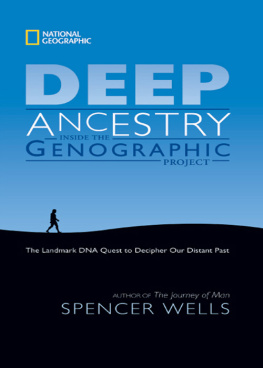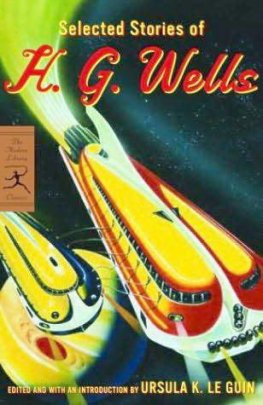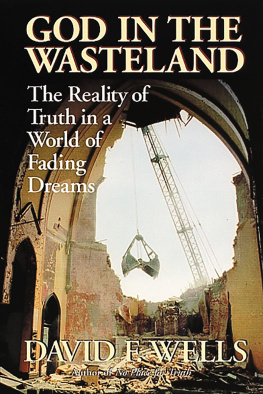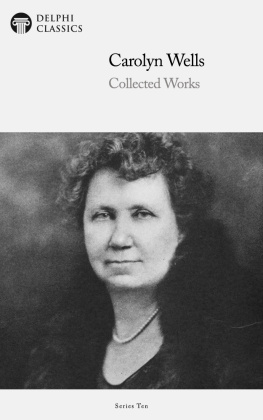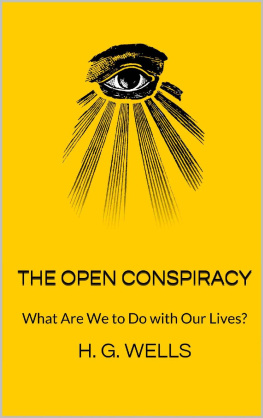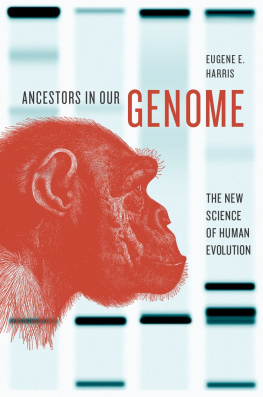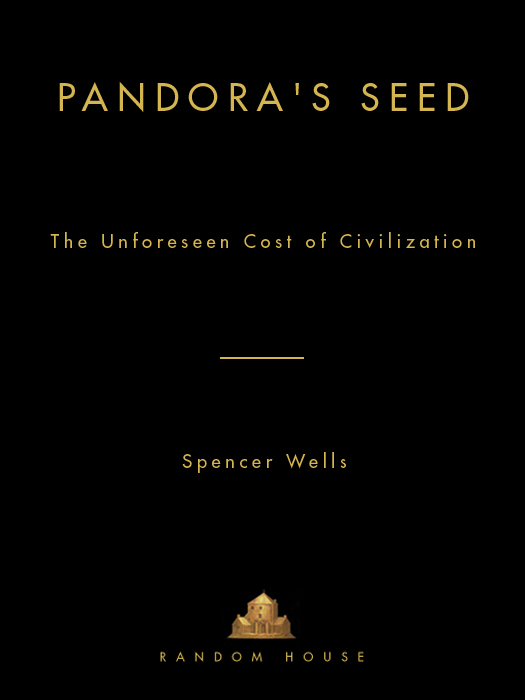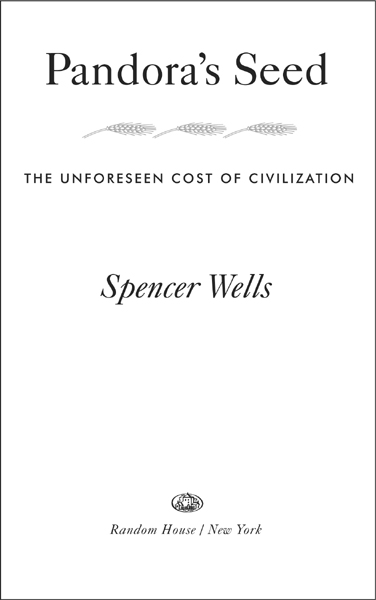ALSO BY SPENCER WELLS
The Journey of Man
Deep Ancestry
To Pam, for peace, love, and understanding
The gods presented her with a box into which each had put something harmful, and forbade her ever to open it. Then they sent her to Epimetheus, who took her gladly although Prometheus had warned him never to accept anything from Zeus. He took her, and afterward when that dangerous thing, a woman, was his, he understood how good his brothers advice had been. For Pandora, like all women, was possessed of a lively curiosity. She had to know what was in the box. One day she lifted the lid and out flew plagues innumerable, sorrow and mischief for mankind. In terror Pandora clapped the lid down, but too late. One good thing, however, was thereHope. It was the only good the casket had held among the many evils, and it remains to this day mankinds sole comfort in misfortune.
( AS RETOLD BY EDITH HAMILTON)
Contents
One:
Two:
Three:
Four:
Five:
Six:
Seven:
Foreword

True, western societies are much better off materially than they were 40 years ago, but why is there so much crime, vandalism and graffiti? Why are divorce rates so high? Why are we seeing declines in civic engagement and trust? Why have obesity and depression reached epidemic proportions, even amongst children? Why do people call this the age of anxiety? Why do studies in most developed countries show that people are becoming unhappier?
RICHARD TOMKINS ,
Financial Times, October 17, 2003
A s I write this, I am 36,000 feet above the Arabian Sea, sipping a glass of wine and typing on my laptop. Im returning from Mumbai, India, where I gave a lecture at a science and technology festival organized by the Indian Institute of Technology. I spent twice as long getting there and back as I did on the ground, and with the ten-and-a-half-hour time change I was more than a little disoriented while I was there. Still, India is one of my favorite countries and it was worth the jet-lag whiplash, bouncing halfway around the world and back over a long weekend.
The students at the institute who invited me wanted to hear about my work on genetics and human migration, a subject I have studied for the better part of the past two decades. The work my colleagues and I have carried out has shown unequivocally that all humans have a recent common origin in Africa, within the past 200,000 years, and that we only started to leave Africa to populate the rest of the world in the past 60,000. I spent an hour describing some of the new data from the field, discussing recent unpublished findings, and generally painting a picture of the genetic history of our species. At the end, as I normally do after such lectures, I took questions. These ranged from technical queries about the laboratory methods we use for analyzing human DNA to more general ones. The final question was something that Ive been asked many times before, and will certainly be asked in the future: What is the broader relevance of your work?
It does seem somewhat esoteric to study the arcane details of distant human history, I suppose, but it has always fascinated me. With the right samples and a smattering of statistics, it is possible to discern the details of how our species populated the globe. But why is this important? the student asked. I began my answer as a scientist, describing the importance of basic research in which there is no particular practical application. Governments fund such work in many subjects, I explained, because it is possible that some new finding may end up being very important in fields that are more pragmaticmedicine, for instance. Moreover, what defines us as a species is our complex culture, and scientific inquiry for its own sake is an important part of understanding our role in the world. Imagine encountering intelligent life from another planet, I said; would such an auspicious meeting include explaining mundane details like how the latest video-game console operates or would it focus on who we are as two highly evolved species and what brought us to our present state of being? We need to learn our history to understand who we are, and to speculate on where we might be going. Lhistoire est un grand prsent, et pas seulement un pass, as the French philosopher Alain wrote. History is a grand view of the present, and not simply something in the past.
But there was another reason this information was important, I explained. We live today in a highly globalized world, one where people come into contact with others they may never have encountered only a century before. Africans mix with Europeans, Asians, and Native Americans to create a social mlange that is unprecedented in human history. Couple this exposure with linguistic and cultural differences, and you have a potentially volatile recipe. We are keenly attuned to such differences, and they help define how we see ourselves. Part of what our genetic work shows, though, is how trivial these differences really areunderneath the surface, at the level of our DNA, we are nearly identical. The broader relevance of our work, I explained, is that we should really start to see past the superficial features that divide us, and start to recognize that we are all part of an extended human family. To the extent that we can see ourselves as connected at the genetic level, we might be able to overcome some of our prejudices.
This notion seemed to have special relevance to the members of this audience, many of whom had recently witnessed the brutal terrorist attack in which Islamic militants from Pakistan had bombed and gunned down people in several locations in south Mumbai and taken control of two landmark hotels, the Taj and the Oberoi. Over the course of four days the terrorists killed 164 innocent people. (Nine of the militants died as well.) For India, the social impact was like 9/11 in the United States, though thankfully with fewer deaths. It would have been natural to feel enraged, to want vengeance, to use this attack as an excuse for further violence. However, the Indian reaction, according to my host at the conference, was not to dwell on negative emotions. It has brought us all togetherall India, he told me as we were weaving through traffic the night I arrived.
The nature of this whole encounter, along with the quote from Richard Tomkins that begins this foreword, highlights the theme of this book. During my career as a geneticist and anthropologist Ive been lucky to work with many people around the world, ranging from senior politicians and the heads of major corporations to tribal foragers eking out a precarious existence in remote wilderness locations. What has struck me over and over again is the huge amount of change taking place in the world today, regardless of where one lives. Some of this change is good, such as the overall decrease in poverty during the course of my lifetime and the drop in the birthrate in developing countries. Other things, though, like 9/11 and the terrorism in Mumbai, have not been so welcome. Everywhere there is a feeling that the world is in flux, that we are on the brink of a historic transition, and that the world will be fundamentally changed somehow in the next few generations. The pace of technological innovation is accelerating, and we are all swept up in it. Think of all of the things indispensable to your daily life that you have learned to use only in the past decade or so. Email, Google, instant messaging, and mobile phones spring to mind immediately, but theres also hybrid car technology, curbside recycling, and social-networking sites like Facebook. All have found widespread application only since the mid-1990s, and yet today we cant imagine living without most of them. Trying to imagine what the world will be like at the close of the twenty-first century is nearly impossible.


